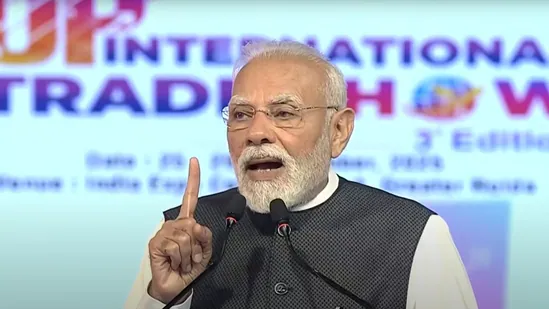Prime Minister Narendra Modi has reiterated his vision of India as a resilient and self-reliant economy, asserting that the nation continues to grow steadily despite mounting global uncertainties. Speaking against the backdrop of international trade tensions, tariff disputes, and concerns over U.S. visa policies such as H-1B restrictions, the Prime Minister emphasized that India’s trajectory is being shaped by its own reforms, innovation, and determination rather than external pressures.
The Prime Minister’s remarks come at a time when geopolitical flux is reshaping global markets. Rising protectionism, supply chain disruptions, and restrictions on skilled labor mobility—particularly around H-1B visas crucial for India’s IT sector—pose challenges to countries deeply integrated with the global economy. Yet Modi insisted that India’s progress has not been derailed. “India is growing despite global distractions,” he said, framing the country’s resilience as proof of its long-term economic fundamentals.
Central to Modi’s message was the theme of self-reliance—a concept that has defined much of his recent policy push under the Atmanirbhar Bharat campaign. By encouraging domestic manufacturing, promoting indigenous innovation, and diversifying trade partnerships, India aims to reduce dependence on volatile global markets. The Prime Minister highlighted key initiatives in renewable energy, digital infrastructure, and defense production as examples of how India is building capacity from within.
At the same time, he acknowledged the concerns raised by industries over tariff disputes and visa restrictions. India’s IT and service sectors, which rely heavily on access to foreign markets and skilled workforce mobility, have been vocal about the challenges posed by tightening immigration rules in countries like the United States. Similarly, exporters remain wary of tariff escalations that could affect competitiveness in global markets. Modi’s pitch appeared to balance these anxieties with a reassurance that India’s domestic market, innovation ecosystem, and policy reforms would serve as buffers against external shocks.
Observers note that Modi’s statement reflects both pragmatism and political messaging. On one hand, it acknowledges the turbulence of the global environment, including trade wars and immigration politics. On the other, it underscores India’s determination to present itself as a stable investment destination with long-term potential. For global investors evaluating emerging markets, the assurance of growth “despite distractions” reinforces India’s narrative of being a reliable partner in uncertain times.
The Prime Minister also stressed that India’s growth is not just about numbers but about resilience and inclusivity. By promoting Make in India, strengthening small businesses, and investing in start-up ecosystems, the government seeks to ensure that the benefits of growth are broad-based. This, he argued, would make India less vulnerable to external headwinds and more capable of charting its independent course.
In the broader context, Modi’s remarks serve as both a message to domestic constituencies and a signal to the international community. Domestically, it reassures citizens and industries that India will safeguard its growth path irrespective of global tensions. Internationally, it positions India as a confident, emerging economy that is willing to engage with the world but not dependent on it for survival.
In conclusion, Prime Minister Modi’s pitch reflects the dual realities of India’s current economic moment—navigating external challenges while deepening internal capacity. Whether dealing with tariffs, immigration restrictions, or shifting global trade alignments, the message is clear: India intends to keep growing, not in isolation, but by standing firmly on its own feet.



